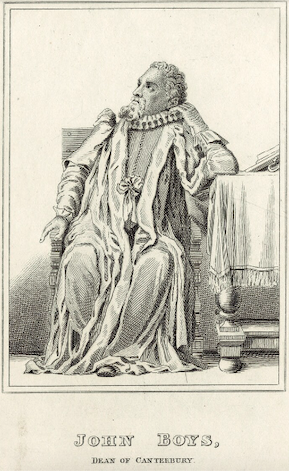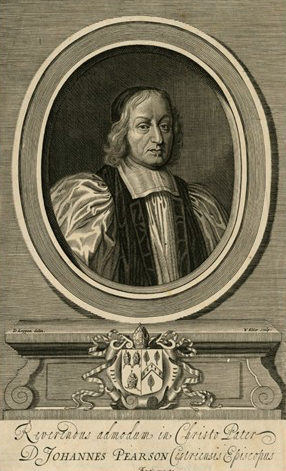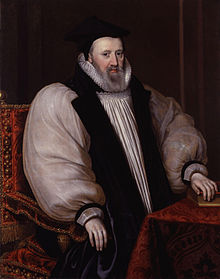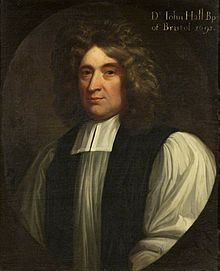
The voice of gladness hath resounded in our land, the voice of exultation and salvation in the tents of sinners (Ps. 118:15; Sg. 2:12; Jer. 33:11). A good word has been heard, a consoling word, a speech full of joy fulness, a rumour worthy of all acceptance (1 Tim. 1:15). Sing praise, O ye mountains (Is. 49:13), and all ye trees of the woods. Clap your hands before the face of the Lord, because He cometh (Is. 55:12; Ps. 96:12-13; Is. 1:2). Hear, O ye heavens, and give ear, O earth! Be amazed, and let every creature give praise; but thou beyond others, O man!
JESUS CHRIST, the Son of God, is born in Bethlehem of Juda.
What heart so stony as not to be softened at these words? What soul is not melted at this voice of her Beloved? What announcement could be sweeter? What intelligence more enrapturing? Was its like ever heard before? Or when did the world ever receive such tidings?
Jesus Christ, the Son of God, is born in Bethlehem of Juda.
O short word, telling of the Eternal Word abbreviated for us! O word full of heavenly delights! The heart is oppressed by its mellifluous sweetness, and longs to pour forth its redundant riches, but words refuse their service. So overpowering is the music of this short speech that it loses melody if one iota is changed.
Jesus Christ, the Son of God, is born in Bethlehem of Juda.
O Nativity of spotless sanctity! O birth honourable for the world, birth pleasing and welcome to men, because of the magnificence of the benefit it bestows; birth incomprehensible to the angels, by reason of the depth and sacredness of the mystery! In all its circumstances it is wonderful because of its singular excellence and novelty. Its precedent has not been known, nor has its like ever followed. O birth alone without sorrow, alone without shame, free from corruption, not unlocking, but consecrating the temple of the Virgin’s womb! O Nativity above nature, yet for the sake of nature! Surpassing it by the excellence of the miracle, repairing it by the virtue of the mystery! Who shall declare this generation? The angel announces it. Almighty Power overshadows it. The Spirit of the Most High comes upon it. The Virgin believes. By faith she conceives. The Virgin brings forth. The Virgin remains a virgin. Who is not filled with astonishment? The Son of the Most High is born. The Son, begotten of God before all ages, is Incarnate! The Word is become an Infant! Who can sufficiently admire?
And it is not a needless Nativity, a superfluous condescension of Infinite Majesty.
Jesus Christ, the Son of God, is born in Bethlehem of Juda.
Awake, you who lie in the dust awake and give praise. Behold, the Lord cometh with salvation. He comes with salvation, He comes with unction, He comes with glory. Jesus cannot come without salvation, Christ cannot come without unction, nor the Son of God without glory. For He Himself is salvation, He is unction, He is glory, as it is written, “A wise son is the glory of his father” (Prov. 10:1).
Happy the soul who has tasted this fruit of salvation, and is drawn to “run in the odour of his ointments” (Sg. 1:3) that she may “see his glory, the glory as of the only-begotten of the Father.” Take courage, you who were lost: Jesus comes to seek and save that which was lost. Ye sick, return to health: Christ comes to heal the contrite of heart with the unction of His mercy. Rejoice, all you who desire great things: the Son of God comes down to you that He may make you the co-heirs of His kingdom. I beseech you, then, Lord, heal me, and I shall be healed; save me, and I shall be saved; glorify me, and I shall be glorious. Then indeed shall my soul bless the Lord, and all that is within me praise His Holy Name, when He shall have been merciful to my iniquities, have healed my infirmities, and have filled my desire with good things.
On account of these three precious gifts of salvation, unction, and glory, it is consoling to hear that Jesus Christ, the Son of God, is born. For why is He called Jesus, but because He shall save His people from their sins? Why has He willed to be named Christ, but because He will soften the yoke of His law by the unction of His grace? Why was the Son of God made man, but to make men the sons of God? Who shall resist His will? If Jesus justifies, who can condemn? If Christ heals, who can wound? If the Son of God exalts, who shall cast us down?
Since Jesus is born, let everyone rejoice whom the consciousness of sin has condemned as deserving of eternal punishment. For the compassion of Jesus exceeds all crimes, however great their number and enormity. Since Christ is born, let him rejoice who wages war with the vices inherent in our nature. No disorder of the soul, how inveterate soever, can withstand the unction which Christ brings. Since the Son of God is born, let him rejoice who desires great things, for a great rewarder comes. “This is the heir”; let us receive Him devoutly, “and the in heritance shall be ours.” For He Who has given us His own Son, how has He not with Him given us all things ? Let no one disbelieve, let no one doubt; we have a most trustworthy testimony. “The Word was made flesh and dwelt amongst us.”
The only-begotten Son of God desired to have brethren, that He might be the first among many brethren. Even human frailty has no cause to hesitate. He has become the brother of men; He has become the Son of man; He has become man. “Et Homo factus est.” And, if man thinks this incredible, sense enforces belief.
Jesus Christ, the Son of God, is born in Bethlehem of Juda.
Behold what condescension! It is not in the royal city of Jerusalem, but in Bethlehem, which is the least of the thousands of Juda. O Bethlehem! O little Bethlehem! Once little, now magnified by the Lord! He has magnified thee Who, though great, became little in thee.
Rejoice, O Bethlehem, and make holiday in thy streets with songs of Alleluia! What city on hearing of thy good fortune will not envy thee that most precious stable and the glory of its manger? In all the wide world thy name is now celebrated, and all generations call thee blessed. Everywhere glorious things are said of thee, O little city of God. Everywhere is sung, “A man is born in her, and the Most High himself hath founded her” (Ps. 86:3, 5). Everywhere it is proclaimed, everywhere it is made known that
Jesus Christ, the Son of God, is born in Bethlehem of Juda.
Nor is it idly added “of Juda.” This word reminds us of God’s promise to our fathers. “The sceptre shall not be taken from Juda, nor the leader from his thigh, until he come who is to be sent, and he shall be the expectation of nations” (Gen. 49:10). “For salvation is of the Jews” (Jn. 4:22); “salvation to the ends of the earth” (Acts 13:47; Is. 49:6). To Juda Jacob says: “Thee shall thy brethren praise: thy hands shall be on the necks of thy enemies” (Gen. 49:8). All these words we see fulfilled in Christ, Who, ascending on high, led captivity captive, yet derived no earthly advantage therefrom, but rather gave gifts to men. These and similar prophecies are recalled to the mind by the words “Bethlehem of Juda.”
And we have no need to inquire whether anything good can come from Bethlehem; it is sufficient for us to know that our Lord willed to be born there. For doubtless there were in the world noble palaces which He might have judged worthy of His choice – palaces where the King of Glory might have been received more honourably; but it was not to purchase them that He came from His royal throne. In his left hand were riches and glory; in His right hand length of days (Prov. 3:16). There was an endless supply of these treasures in heaven, but poverty could not be found there. Earth abounded and superabounded in this kind of merchandise, and men knew not its value. The Son of God was desirous of it. He came down from heaven to make it His own, and so render it precious to us by His choice. Adorn thy bridal-chamber, O Sion, devout soul, but with humility and with poverty. These are the swathing-bands that please our Infant Jesus; these are the rich robes in which Mary tells us He loves to be clothed. Sacrifice to thy God the abominations of the Egyptians.
Remember, too, that it is in Bethlehem of Juda that Jesus is born; and be very careful lest you fail to be found there, lest He fail to be received by you. Bethlehem is the house of bread; Juda signifies confession or praise. If, then, you replenish your soul with the food of the Divine Word, the Body of our Lord Jesus Christ, and devoutly receive the Bread which came down from heaven, and which giveth life to the world; if the vessel of your body is made strong and able to hold the new wine by being refreshed and strengthened with His new and glorified flesh; if, moreover, you live by faith, and have no need to weep because you have forgotten to eat your bread, then, indeed, you are become a Bethlehem fitted to receive our Lord.
But see that praise be not wanting. Put on praise and beauty; these are the garments Christ approves of in those who serve Him. The Apostle commends them to you in a few words: “In the heart we believe unto righteousness; by the mouth is made confession unto salvation” (Rom. 10:10). Let, then, righteousness be in the heart, the righteousness which is of faith. This alone has glory before God. Let confession also be in the mouth unto salvation, and you are sure to receive Him Who was born in Bethlehem of Juda, Jesus Christ the Son of God.
– Bernard of Clairvaux (1090-1153), First Sermon on the Vigil of our Lord’s Nativity









